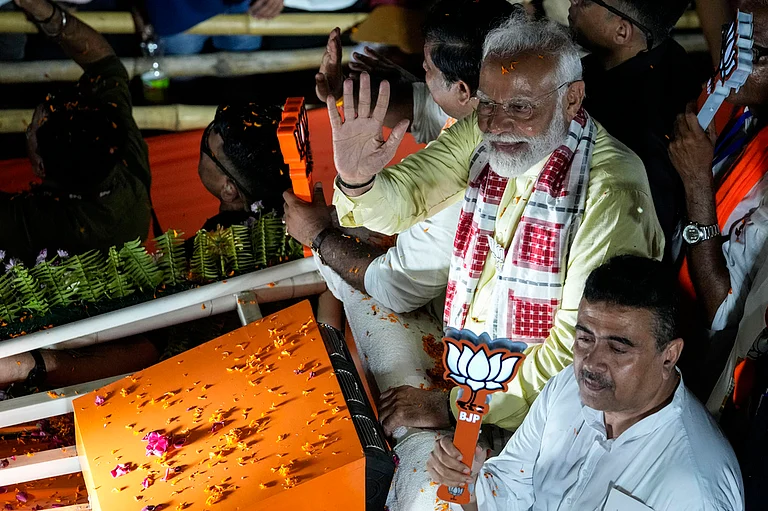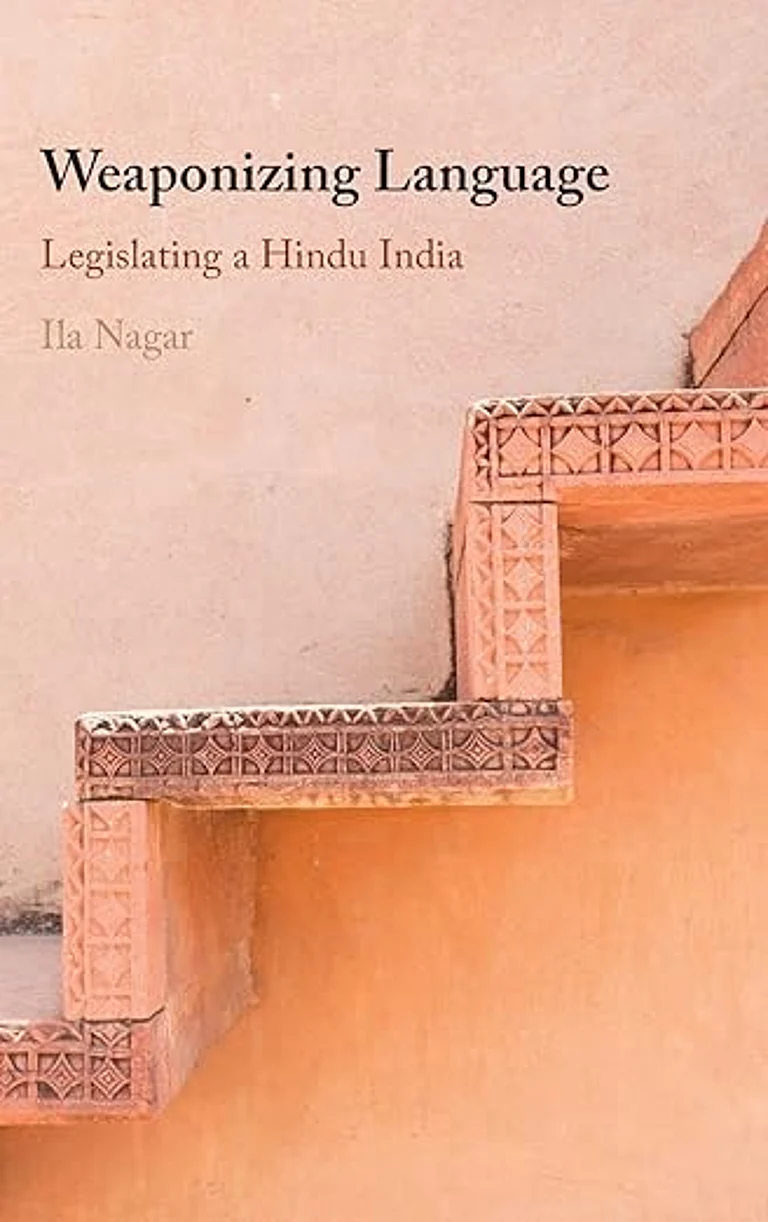Four years after the enactment of the Citizenship Amendment Act (CAA), the Union government on Monday notified the rules for the implementation of the law. The rules are formally called the Citizenship (Amendment) Rules, 2024 and replace the citiznenship rules previously notified in 2009.
With the publication of the notifications in the Gazette of India, the CAA has become active after being dormant for four years.
The CAA paves way for the expediated grant of citizenship to non-Muslim illegal migrants from Pakistan, Afghanistan, and Bangladesh who entered India before 2014.
In 2019-20, the enactment of CAA saw widespread protests across the country which turned violent on a number of occasions. The critics have termed the CAA along with the proposed National Register of Citizens (NRC) as an anti-Muslim law that could lead to the disenfranchisement of Indian Muslims. They also say that the law is discriminatory as it excludes Muslims.
While there are no stated plans in motion for a nationwide NRC, there are concerns that the NRC will follow the implementation of the CAA.
Here we explain what's CAA, what's the Modi government's idea behind the law, what's NRC and why CAA in conjunction with NRC has been criticised.
What Is Citizenship Amendment Act?
The Citizenship Amendment Act (CAA) is a law that the Bharatiya Janata Party (BJP) government brought in 2019. It paved the way for expediated citizenship for non-Muslim illegal immigrants from Pakistan, Bangladesh, and Afghanistan.
The CAA allows a pathway for illegal immigrants from these three countries who belong to the Hindu, Sikh, Buddhist, Jain, Parsi, and Christian communities. The condition is that they should have entered India on or before December 31, 2014. The CAA does this via two ways. One, it reduces the years required for their citizenship by naturalisation. Two, it provides them immunity from prosecution that their illegal status would otherwise attract.
Under the CAA, for these communities, the threshold for getting citizenship via naturalisation would be five years instead of 11 years.
As for the second point, at the time of the introduction of the bill in the Lok Sabha in 2019, Union Home Minister Amit Shah was quoted as saying: "The competent authority, to be prescribed under the Act, shall not take into account any proceedings initiated against such persons regarding their status as illegal migrant or their citizenship matter while considering their application under section 5 or section 6 of the Act, if they fulfil all the conditions for grant of citizenship."
Govt's Idea Behind CAA
The Union government's idea behind the law was to enable a pathway to Indian citizenship for persecuted religious minorities in the three Muslim-majority countries of Pakistan, Bangladesh, and Afghanistan in the Indian neighbourhood. It has pitched the law as a means to provide refuge from religious persecution to religious minorities in the erstwhile British India (Pakistan and Bangladesh) and the larger Indian subcontinent (Afghanistan).
In the Statement of Objects and Reasons while introducing the bill in the Lok Sabha in 2019, Union Home Minister Amit Shah said that the communities included in the law's ambit have fears about such persecution in their day-to-day life where right to practice, profess, and propagate their religion has been obstructed and restricted. He further said that "many such persons have fled to India to seek shelter and continued to stay in India even if their travel documents have expired or they have incomplete or no documents".
Shah noted that such persons, however, who arrived in India without valid documents could not apply for Indian citizenship under the earlier laws. To address this, the government brought two notifications in 2015 and 2016. "The Central Government exempted the said migrants from the adverse penal consequences of the Passport (Entry into India) Act, 1920 and the Foreigners Act, 1946 and rules or orders made thereunder vide notifications, dated 07.09.2015 and dated 18.07.2016. Subsequently, the Central Government also made them eligible for long term visa to stay in India, vide, orders dated 08.01.2016 and 14.09.2016," said Shah.
As the long-term visa is a precursor to citizenship via naturalisation, the notifications practically enabled a pathway to citizenship from 2015-16 for such persons. However, for those who entered India before 2015-16, such a pathway was lacking. For them, said Shah, a special regime was needed. Hence the government came up with the CAA that had the cut-off date of 2014.
"The illegal migrants who have entered into India up to the cut of date of 31.12.2014 need a special regime to govern their citizenship matters. For this purpose the Central Government or an authority specified by it, shall grant the certificate of registration or certificate of naturalisation subject to such conditions, restrictions and manner as may be prescribed," said Shah in the Statement of Objects and Reasons of the Citizenship Amendment Bill, 2019, at the time of its introduction.
Why Is CAA Criticised?
The Citizenship Amendment Act (CAA) has broadly been criticised on two points. One, it excludes Muslims and other ethnic minorities from its ambit. Two, in conjunction of with the proposed National Register of Citizens (NRC), the critics of CAA have said that the law could disenfranchise Indian Muslims.
Even if one goes by the Union government's stated objective to provide a refuge to those who have suffered religious persecution in India's neighbourhood, the critics say the law falls much short of doing the stated job. For one, the law only covers Pakistan, Afghanistan, and Bangladesh, and excludes China where Tibetan Buddhists and Uighur Muslims have suffered decades of persecution and cultural repression, Sri Lanka where ethnic Tamils have alleged systematic discrimination and state-sponsored abuse, and Myanmar where Rohingya Muslims are systematically persecuted.
Even in Afghanistan, Pakistan, and Bangladesh, there are a number of non-majority Muslim sects that have faced systematic persecution from the majority religious sect or ethnic groups. These groups include Shias, Hazaras, and Ahmadiyya Muslims.
By excluding non-Muslim minorities from China, Myanmar, and Sri Lanka along with Muslim minority sects and ethnic groups from the targeted countries of Afghanistan, Pakistan, and Bangladesh, the CAA falls short of its mandate of providing refuge to the persecuted people, according to critics. They also say that the law in its current form feeds into fears that it targets Muslim countries and excludes Muslims with some ulterior designs.
Then, there are the concerns of CAA combining with NRC that could lead to the disenfranchisement of Indian Muslims, according to critics.
What Is NRC, Why Is It A Concern With CAA?
To be sure, there is no announcement of a nationwide National Register of Citizens (NRC) yet and there is no indication that the NRC exercise is imminent.
So far, the NRC has only been conducted in Assam because of historical reasons. The NRC in Assam was an outcome of the Assam Accords signed between the Governments of Assam and India and the All Assam Students Union (AASU) and the All Assam Gana Sangram Parishad in 1985 after six years of mass-movement. The Accords, which led to the NRC, basically said that a resident of Assam is an Indian citizen if they could prove their presence or an ancestor's presence in Assam before the cut-off date of March 25, 1971.
In this NRC exercise, stories have come of people who have lived for multiple generations in the state but lack appropriate documents to prove their citizenship.
For any nationwide NRC, similar concerns apply. It is feared that there would be many genuine Indian nationals who could lose citizenship as they may not have appropriate documents. While NRC in itself is a matter of concern, CAA in conjunction with NRC has added to the concerns.
It has been flagged that those excluded from the NRC rolls but belonging to the religious communities mentioned in the CAA —Hindus, Sikhs, Buddhists, Jains, Parsis, Christians— could theoretically have a backdoor to regaining the Indian citizenship. Such a route will not exist for Muslims who are not included from CAA. This way, say critics, CAA in conjunction with the proposed NRC could lead to the disenfranchisement of Indian Muslims.
"Indian Muslims could be badly affected by CAA+NRC, because those Muslims who do not have the documents required to prove their citizenship in a nationwide NRC could be declared as illegal migrants and they would not be able to use CAA, like non-Muslim Indians perhaps could, to get citizenship by lying and claiming that they are illegal migrants from Bangladesh, Pakistan and Afghanistan," said the collective Citizens for Justice and Peace (CJP) in a publication.
Such concerns have also been fuelled by Union Home Minister Amit Shah's 'chronology' remark. In 2019, Shah said that first the CAA will be implemented and all "refugees" —the non-Muslim illegal immigrants from Bangladesh, Pakistan and Afghanistan— will be provided citizenship and then the NRC will be implemented.
"Firstly, the CAB [Citizenship Amendment Bill] is going to come into effect and all the refugees will be given citizenship. Then, the NRC will be brought in. Refugees need not worry but infiltrators surely need to worry. You need to understand the chronology," said Shah in Hindi in 2019.
Regarding the CAA and NRC, Senior Advocate Prashant Bhushan said that the CAA-NRC combine will be used to exclude people and then selectively include some of those excluded people.
"The CAA is unconstitutional and discriminatory on several grounds, including exclusion based on religion. The timing of the notification is meant to polarise the electorate upon the Hindu-Muslim divide...You will use NRC to exclude people, then use CAA to only selectively include people," said Bhushan, as per Al Jazeera.
Writing for Al Jazeera, Yashraj Sharma noted that the law "could lead to the deportation of millions who have lived in India for generations but do not have identity papers proving the legal status of their ancestors".
"Muslim groups and rights activists say the combination of the CAA and the NRC could be used to target members of India’s 200 million-strong Muslim population," noted Sharma.


























